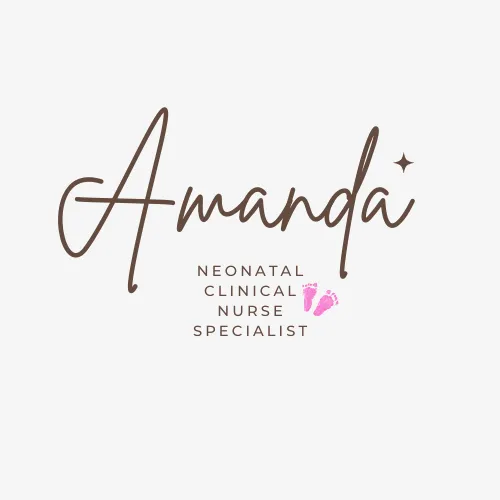
Welcome to Amanda's NICU Education

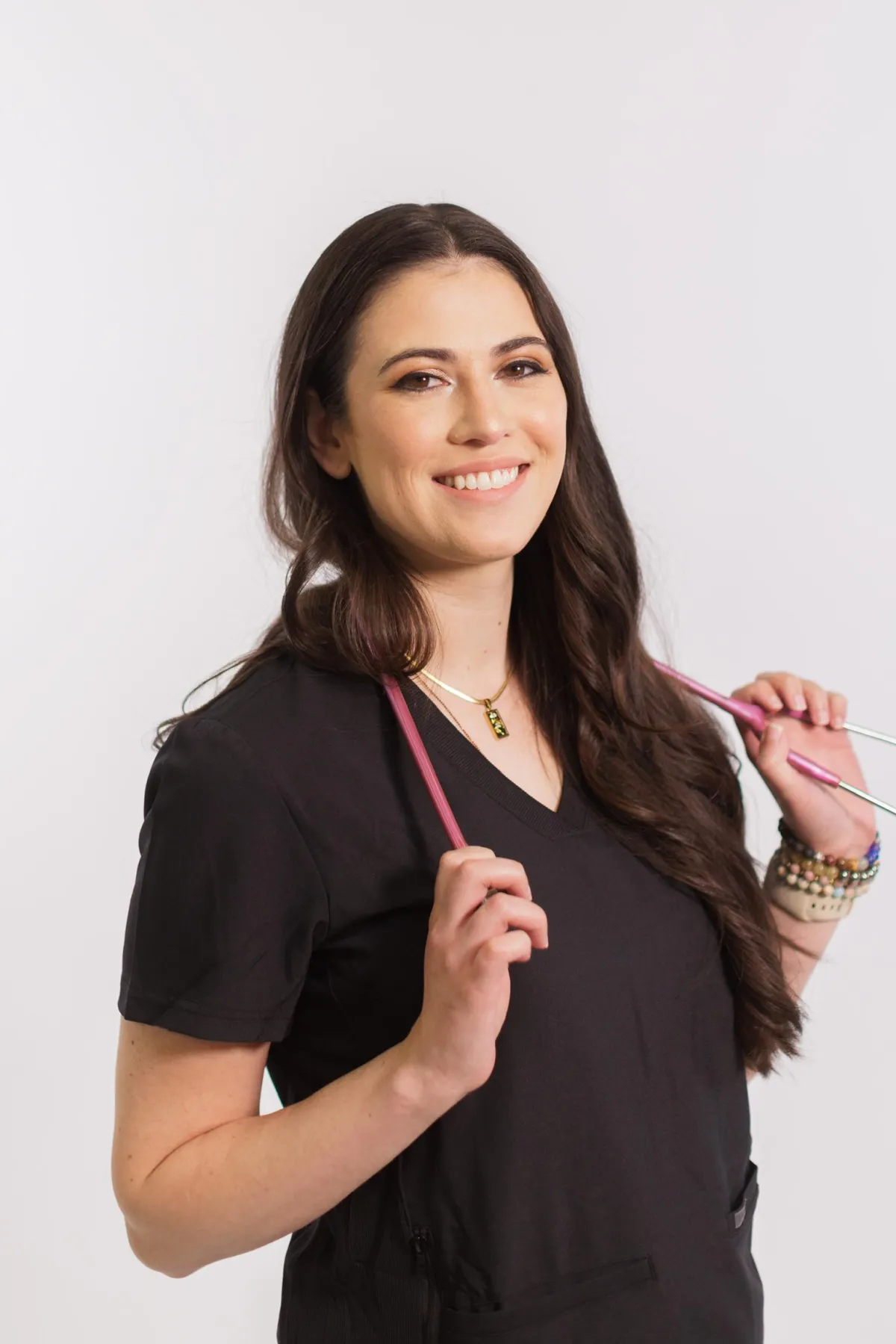


Hi! My name is Amanda. I'm a NICU nurse, Clinical Nurse Specialist, NICU Educator... basically your NICU BFF. If you want to talk NICU, I'm here for you! I love everything about NICU nursing and I'm eager to learn and share my knowledge with all my NICU friends.
I have been a NICU nurse since 2009 I am currently a Clinical Nurse Specialist in a Level IV NICU in Los Angeles.
I am passionate about educating the next generation of NICU nurses. I share my knowledge through platforms such as Instagram and Facebook and am excited to have you here on my website!
Click on the button below to sign up for my newsletter filled with NICU education and tips for all experience levels.

Not very many people love taking tests but as a self-acclaimed "forever student" who has taken (and passed) five different certification exams I am no longer afraid of tests! "Way to brag", you might be thinking but I want to help YOU pass your certification exam too!
Introducing Amanda's RNC-NIC Success digital course - your ultimate study companion!
Gain unlimited, on-demand access for life, ensuring you're primed to ace your certification exam.
I'm here to help you succeed and I can't wait for you to share with me that you PASSED the RNC-NIC EXAM!!!









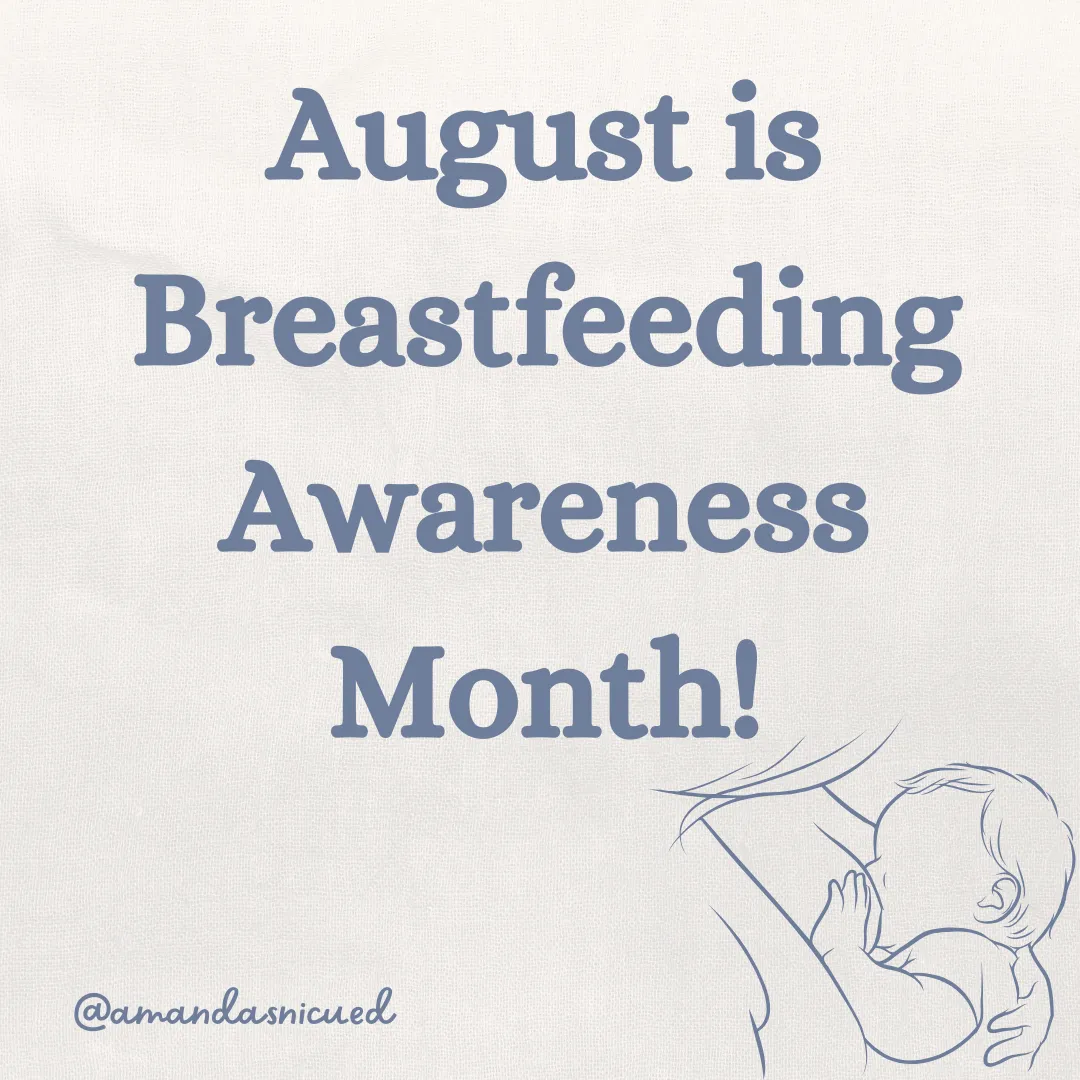
Happy Breastfeeding Awareness Month
Happy Breastfeeding Awareness Month!
Breastfeeding is a journey filled with love, sacrifice, and determination. This month, we want to honor every mother who has embarked on this path, nurturing her baby with the most natural and profound gift of all. We recognize the sleepless nights, the moments of doubt, and the unwavering dedication it takes to continue, even when the road gets tough. All mothers who breastfeed and express their breastmilk for their baby demonstrate a powerful expression of love, and I want to celebrate you.
No mother embarks on this journey alone. Behind every breastfeeding mom is a circle of support—partners, family members, friends, and the NICU team—who stand by her side, offering encouragement and care. Your support is the foundation that allows breastfeeding to flourish, providing the strength and comfort that every mother needs.
As we celebrate breastfeeding this month, I want to extend my heartfelt thanks to all the NICU nurses and staff who make this journey possible. Together, you create a community of care where both mothers and babies can thrive
Learn more about Breastmilk & Breastfeeding CLICK HERE!
Setting Parents and Babies Up for Breastfeeding Success!
The NICU environment does not make breastfeeding easy. How do you support moms and lactating parents in the NICU for breastfeeding success? One of my absolute favorite ways to support parents and babies with the breastfeeding process is by facilitating skin to skin holding early and often.

Many babies in the NICU cannot begin breastfeeding right away. They may have respiratory distress, be born premature, or have other health issues that prevent them from initiating breastfeeding. In these situations it is important to facilitate skin to skin care as soon as possible. We know the many benefits of skin to skin care. I discussed them in the blog back in May. Skin to skin holding triggers a release of maternal hormones, such as prolactin, to stimulate milk production. In fact, encouraging and facilitating skin to skin holding can increase maternal milk production! I found this interesting study that saw increased duration of skin to skin holding to be associated with increased maternal milk exposure in preterm babies (Daniels et al., 2023).
Click Here to Read More About Skin to Skin
Expressing Breastmilk
Expression of breastmilk is dependent on stimulation and emptying of the breasts. Like many of our endocrine systems, a feedback loop creates the signals to tell the breasts to produce milk. If this stimulation does not occur, milk production will stop. As NICU nurses it is so important that we are encouraging and supporting new mothers and lactating parents to express their breast milk. In the initial days after birth, hand expression may be an easier way to express colostrum compared to pumping.
Expressing breastmilk within the first hours after birth is important to help tell the body to produce milk while parents are separated from their NICU baby. Does your hospital have a goal timeframe to support NICU mothers and lactating parents with expressing colostrum?
I love this video on Hand Expression by First Droplets.com
Supporting Breastfeeding in the NICU
How confident do you feel as a NICU nurse when supporting mothers and lactating parents with breastfeeding? Let's review two breastfeeding positions and assessment of latch.
Before we assist with positioning the infant, it is important to ensure that the mother or lactating parent is comfortable and provide privacy. Ensure you have pillows to support their back and the baby.
Positions:

Cross-cradle hold: in this position the parent will hold the baby with the opposite arm from the breast the baby will latch onto. The baby is supported at the nape of the neck and shoulders, and down the back and body by the parent’s forearm. The baby is facing their parent tummy to tummy with their ear, shoulder and hip aligned. Make sure you have plenty of pillows to support baby on the lactating parents lap and to support their back.
Cross-Cradle Image from Unicef.org

Football Hold: In this position the lactating parent holds the baby with the same arm as the side the baby will latch onto. The baby is supported at the nape of the neck and shoulders, and down the back and body by the parent’s hand and forearm. The baby is facing their parent with their ear, shoulder and hip aligned. Use pillows to support the baby under the parent’s arm and behind their back.
Football Hold Image from Unicef.org
Latching
When supporting NICU parents with breastfeeding, it's important that we assess for the quality of the breastfeeding and the latch.
The latch is how the baby is positioned on the nipple, areola, and breast. We can help facilitate a good latch by encouraging hand expression of a few drops of colostrum or breastmilk. The smell of the milk can encourage the baby to root toward the nipple.

Compressing the breast can also assist the baby with latching. Someone once described it to me as if we are taking a bite of a huge sandwich, we have to compress it to get a bite of the whole thing. When helping the baby latch, position the nipple toward the babies nose. When the baby begins to root, guide them toward the breast leading with the chin so that the nipple is pointing upward toward the top of their mouth. Once the baby is latched we should see their lips flanged out (like a fish).
Sometimes babies (especially premature babies) are unable to maintain a latch and a nipple shield can help. A nipple shield helps facilitate a longer, firmer nipple and can make latching easier in babies with low oral tone or parents with flat or inverted nipples.

It is an honor for us NICU nurses to support parents and babies in their breastfeeding journeys. I hope this overview was helpful and will make you feel more knowledgable and confident when supporting breastfeeding in your NICU.
What questions do you have about breastfeeding or NICU care? Reply to this email and let me know! I love to create content to support you in developing your NICU knowledge and skills!
Amanda xoxo
Missed my other newsletters? Click here to read them!
Let's Study Together! Join my Certification Course
References:
Daniels F, Sawangkum A, Kumar A, Coombs K, Louis-Jacques A, Ho TTB. Skin to Skin Contact Correlated with Improved Production and Consumption of Mother's Own Milk. Breastfeed Med. 2023;18(6):483-488. doi:10.1089/bfm.2022.0297
Kurt, N.C., Di Renzo, G.C. (2023). Physiological Aspects of Lactation. In: Şahin, Ö.N., Briana, D.D., Di Renzo, G.C. (eds) Breastfeeding and Metabolic Programming. Springer, Cham. https://doi-org.mlprox.csmc.edu/10.1007/978-3-031-33278-4_5
Unicef.org (n.d.) Common breastfeeding positions. Images retrieved from https://www.unicef.org/parenting/food-nutrition/breastfeeding-positions
Nurturingmilk.com (n.d.) How to get a deep latch. Image retrieved from https://nurturingmilk.com/how-to-get-a-deep-latch/

December 2023 Certification Review Webinar
NICU Certification Review


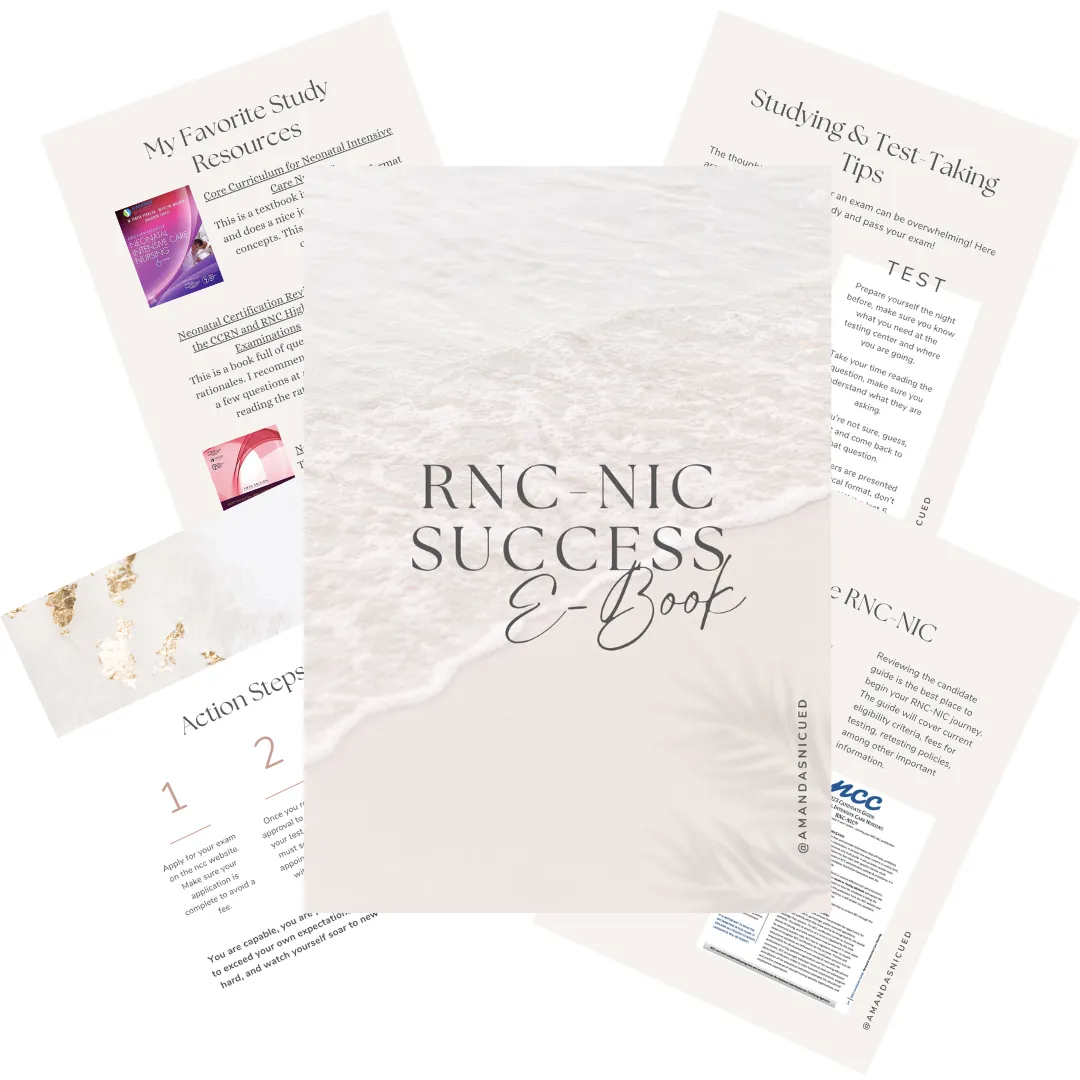
Ready to kickstart your journey to becoming a certified NICU nurse?
Look no further!
Grab my FREE E-Book packed with essential study and test-taking strategies for the RNC-NIC.
In the E-Book I give you the resources you need including the link to access the candidate guide, several types of books to study from, some of my favorite strategies, an outline of the content you should review, and a blank calendar for you to make your study plan!
Frequently Asked Questions About the RNC-NIC exam

What is the RNC-NIC?
The RNC-NIC is a competency-based exam that tests the specialty knowledge of nurses in the United States & Canada who care for critically ill newborns and their families.
The RNC-NICU is a nationally recognized certification that recognizes the registered nurse for their specialty knowledge and skill.
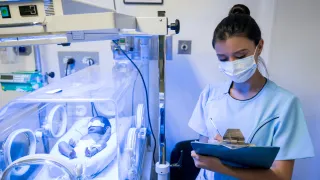
Who can take the RNC-NIC exam?
Nurses can take this exam after a minimum of two years experience in the NICU caring for critically ill newborns and their families.

Which books should I use?
I'm glad you asked! There are many excellent books to help you prepare for the RNC-NIC, I gathered ande describe each of them for you in my FREE e-book.
Is there a course to help me study?
Yes! Many hospitals host their own certification course and there are a few online courses. See my RNC-NIC test taking tips E Book for more information
What happens if I don't pass the exam?
If you don't pass the exam on your first try you can try again after 90 days. You will have to reapply after 90 days and pay a retest fee. There is no limit to the number of times you can take the exam (however a candidate can only sit for the exam twice per year).
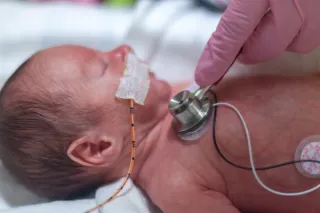
Can I make more money if I take the RNC-NIC exam and get certified?
Yes! Many hospitals provide a raise or a bonus for nurses with specialty certifications. Hospitals also typically hire at a higher base salary when nurses have a certification.

Find me @amandasnicued on these channels or Email me
hey nurses don't miss out
© Copyright 2024. AmandasNICUEd. All rights reserved. | Terms & Conditions | Privacy Policy Contact: [email protected]
